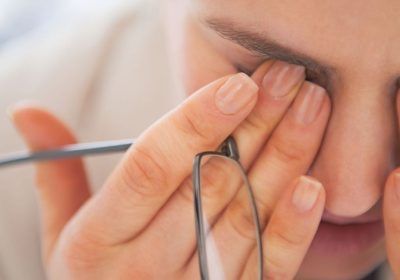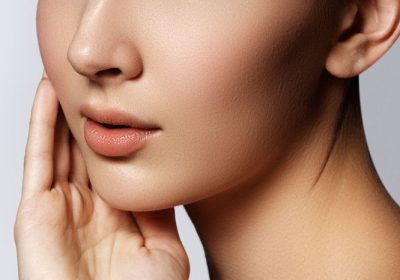
Things you should know about health and oral care
Introduction
In today’s fast-paced world, maintaining good health and oral care is essential for a happy and fulfilling life. Your oral health plays a crucial role in your overall well-being, as it affects your ability to eat, speak, and interact with others. With that in mind, this comprehensive guide aims to provide you with valuable insights and practical tips to help you achieve optimal health and oral care. So let’s dive in and discover the key aspects you should know about!
The Importance of Oral Health
Maintaining good oral health is not just about having a bright smile; it’s about keeping your teeth and gums healthy. Poor oral health can lead to various problems, including tooth decay, gum disease, bad breath, and even systemic health issues. By practicing proper oral hygiene and visiting your dentist regularly, you can prevent these issues and maintain a healthy mouth.
Understanding Oral Hygiene Practices
Oral hygiene practices are the foundation of good oral health. Here are some essential practices you should incorporate into your daily routine:
Brushing Techniques
Proper brushing techniques are vital for effective plaque removal. Use a soft-bristled toothbrush and fluoride toothpaste. Hold your toothbrush at a 45-degree angle and make gentle, circular motions along the gum line and tooth surfaces. Don’t forget to brush your tongue to remove bacteria and freshen your breath.
Flossing and Interdental Cleaning
Brushing alone is not enough to clean between your teeth. Flossing and interdental cleaning help remove plaque and food particles from these hard-to-reach areas. Use dental floss or interdental brushes to clean between your teeth at least once a day.
Mouthwash and Rinsing
Mouthwash can complement your oral hygiene routine by reaching areas that brushing and flossing may miss. Choose an antiseptic mouthwash to kill bacteria and freshen your breath. Additionally, rinsing your mouth with water after meals can help remove food debris.
Healthy Diet for Oral Health
A nutritious diet is not only beneficial for your overall health but also for your oral health. Here are some key elements to consider when it comes to maintaining a healthy diet for your teeth and gums:
Limit Sugary and Acidic Foods
Frequent consumption of sugary and acidic foods and drinks can contribute to tooth decay. Limit your intake of sugary snacks, carbonated beverages, and acidic fruits. If you do consume them, rinse your mouth with water afterward and wait before brushing your teeth to avoid enamel erosion.
Include Tooth-Friendly Foods
Certain foods promote good oral health. Incorporate foods rich in calcium, such as dairy products and leafy greens, as they help strengthen your teeth. Crunchy fruits and vegetables, like apples and carrots, can also stimulate saliva production, which aids in natural plaque removal.
Stay Hydrated
Water is not only essential for your overall health but also for maintaining good oral health. Drinking an adequate amount of water helps wash away food particles and keeps your mouth hydrated, reducing the risk of dry mouth and bad breath.
Regular Dental Check-ups
While maintaining a consistent oral hygiene routine at home is crucial, it’s equally important to visit your dentist regularly for check-ups and professional cleanings. Dental professionals can identify early signs of oral issues, provide tailored advice, and perform preventive treatments to ensure your oral health remains in optimal condition.
Additional Tips for Optimal Oral Care
Apart from the basics, here are some additional tips to enhance your oral care routine:
Quit Smoking and Limit Alcohol Consumption
Smoking and excessive alcohol consumption have detrimental effects on your oral health. They increase the risk of gum disease, tooth loss, oral cancer, and other
conditions. Quitting smoking and limiting alcohol intake can significantly improve your oral health and overall well-being.
Protect Your Teeth During Physical Activities
If you participate in sports or activities that involve physical contact, it’s crucial to protect your teeth from potential injuries mouthguard can help prevent tooth fractures, dislodgment, and other oral injuries. Consult with your dentist to get a custom-fitted mouthguard that offers the best protection for your teeth.
Be Mindful of Teeth Grinding
Teeth grinding, also known as bruxism, can cause significant damage to your teeth and jaw. It often occurs during sleep or in response to stress. If you suspect that you grind your teeth, talk to your dentist. They can recommend a nightguard to protect your teeth while you sleep or suggest relaxation techniques to manage stress.
Maintain a Healthy Lifestyle
Your oral health is closely linked to your overall health. Adopting a healthy lifestyle can contribute to better oral care. Here are some tips:
Balanced Diet
Eating a balanced diet not only benefits your body but also supports your oral health. Ensure you consume a variety of nutrients, including vitamins A, C, and D, calcium, and phosphorus, which are essential for strong teeth and gums.
Limit Sugary Beverages
Frequent consumption of sugary beverages, such as soda and energy drinks, can erode tooth enamel and increase the risk of cavities. Opt for water or unsweetened beverages instead.
Stress Management
Stress can manifest in various ways, including teeth grinding, gum disease, and poor oral health habits. Find healthy ways to manage stress, such as exercise, meditation, or engaging in hobbies you enjoy.
Stay Hydrated
Drinking plenty of water throughout the day helps maintain saliva production, which is crucial for oral health. Saliva helps neutralize acids, wash away food particles, and prevent dry mouth.
Importance of Regular Dental Check-ups
Regular dental check-ups are essential for maintaining optimal oral health. Here’s why:
Early Detection of Issues
Dentists can detect oral health issues at their early stages, such as tooth decay, gum disease, and oral cancer. Early detection allows for prompt treatment and prevents the progression of these conditions.
Professional Cleanings
Even with diligent oral care at home, plaque and tartar can build up over time. Professional dental cleanings remove these deposits, reducing the risk of gum disease and tooth decay.
Customized Advice and Treatment
Your dentist can provide personalized advice and treatment options based on your specific needs. They can address any concerns you have and recommend strategies to improve your oral health.
Maintaining good health and oral care is essential for overall well-being. By following a consistent oral hygiene routine, eating a nutritious diet, and visiting your dentist regularly, you can achieve optimal oral health. Remember to brush and floss daily, limit sugary and acidic foods, wear a mouthguard during physical activities, and manage stress effectively. Embracing these practices will not only give you a healthy smile but also contribute to a happier and healthier life.
Remember, your oral health is a lifelong commitment. Take care of your teeth and gums, and they will take care of you. Start implementing these tips today to enjoy the benefits of a healthy and radiant smile!
For more detailed information and personalized advice, consult with your dentist or dental professional. They can provide specific recommendations based on your unique oral health needs.
Start your journey towards excellent oral health and overall well-being today!






